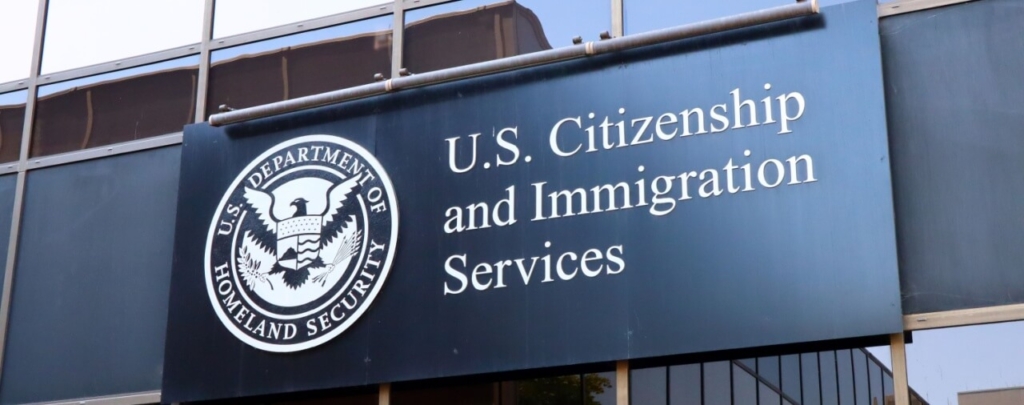Introduction
On December 21, 2017, Attorney General Jeff Sessions rescinded 25 guidance documents that had been issued over the years by the U.S. Department of Justice (DOJ) [PDF version].
We discussed in a previous article that Attorney General Sessions had issued a memorandum on ending the DOJ’s practice of regulation by guidance [see article]. This guidance document was issued to follow the policy set forth in President Donald Trump’s February 24, 2017 Executive Order 13777, titled “Enforcing the Regulatory Reform Agenda” and published in the Federal Register (FR) at 82 FR 12285 [PDF version].
Rescinded Documents
Sessions stated that he was rescinding the 25 guidance documents because they were determined to be “unnecessary, inconsistent with existing law, or otherwise improper.” The majority of guidance documents were issued under the Clinton, George W. Bush, and Obama Administrations, although a couple were older. The following is the list of 25 rescinded guidance documents:
1. ATF Procedure 75-4.
2. Industry Circular 75-10.
3. ATF Ruling 85-3.
4. Industry Circular 85-3.
5. ATF Ruling 2001-1.
6. ATF Ruling 2004-1.
7. Southwest Border Prosecution Initiative Guidelines (2013).
8. Northern Border Prosecution Initiative Guidelines (2013).
9. Juvenile Accountability Incentive Block Grants Program Guidance Manual (2007).
10. Advisory for Recipients of Financial Assistance from the U.S. Department of Justice on Levying Fines and Fees on Juveniles (January 2017).
11. Dear Colleague Letter on Enforcement of Fines and Fees (March 2016).
12. ADA Myths and Facts (1995).
13. Common ADA Problems at Newly Constructed Lodging Facilities (November 1999).
14. Title II Highlights (last updated 2008).
15. Title III Highlights (last updated 2008).
16. Commonly Asked Questions About Service Animals in Places of Business (July 1996).
17. ADA Business Brief: Service Animals (April 2002).
18. Prior Joint Statement of the Department of Justice and the Department of Housing and Urban Development Group Homes, Local Land Use, and the Fair Housing Act (August 18, 1999).
19. Letter to Alain Baudry, Esq., with standards for conducting internal audit in a non-discriminatory fashion (December 4, 2009).
20. Letter to Esmeralda Zendejas on how to determine whether lawful permanent residents are protected against citizenship status discrimination (May 30, 2012).
21. Common ADA Errors and Omissions in New Construction and Alterations (June 1997).
22. Common Questions: Readily Achievable Barrier Removal and Design Details: Van Accessible Parking Spaces (August 1996).
23. Website guidance on bailing-out procedures under section 4(b) and section 5 of the Voting Rights Act (2004).
24. Americans with Disabilities Act Questions and Answers (May 2002).
25. Statement of the Department of Justice on Application of the Integration Mandate of Title II of the Americans with Disabilities Act and Olmstead v. L.C. to State and Local Governments’ Employment Service Systems for Individuals with Disabilities (October 31, 2016).
Two Rescinded Documents Touching on Immigration Issues (19 & 20, above)
None of the rescinded documents bear significantly on immigration issues. However, two of the letters did address issues having to do with the employment of aliens. While we will discuss the documents in brief, it is important to note that both have been rescinded and, in fact, taken down from the DOJ website. However, it is worth noting that David Shortell and Jessica Schneider of CNN reported that a DOJ official have stated that both of the immigration-related letters “were outdated and revoked because subsequent guidance on the subjects has been issued…”1
First, document 19, “Letter to Alain Baudry, Esq., with standards for conducting internal audit in a non-discriminatory fashion (December 4, 2009),” consists of a DOJ response to a question from Baudry, an attorney, concerning a client matter. Although the DOJ deleted the letter, we have uploaded a cached version for those who are interested in reading [PDF version]. The letter detailed that Baudry stated that the human resources manager of a client had learned from the police department that one of its employees lacked employment authorization. As a result, the client reviewed documents presented by another employee hired around the same time and discovered that the social security card presented by that employee included “notable spelling errors,” calling into question its validity.
Baudry posed two questions. First, he wanted to know if his client was permitted to question the employee and request or require that the employee submit another form of employment verification. If not, he wanted to know what other steps the employer should take. Second, he asked if the client could conduct a further review or audit of other files and take similar steps if it found any other documents that included “such obvious errors.”
Katherine A. Badwin of the DOJ did not provide case-specific guidance in response. Instead, she explained that the anti-discrimination provisions of the section 274B of the Immigration and Nationality Act (INA) “prohibits hiring, firing, recruitment or referral for a fee, and unfair documentary practices during the employment eligibility verification (Form I-9) process (document abuse) on the basis of citizenship or immigration status or national origin…” However, she added that “[a]n employer may choose to conduct an internal audit of its I-9 forms as long as it is conducted for every employee in the same manner.” She further added that if, during a properly conducted audit, an employer finds that some documents or forms are incomplete, it may re-verify those employees. An employer may not accept documentation that does not appear genuine or to relate to the employee in question.
However, document 20, “Letter to Esmeralda Zendejas on how to determine whether lawful permanent residents are protected against citizenship status discrimination (May 30, 2012),” did touch more directly on an immigration issue. Although the document appears to no longer be on the DOJ website, the text of the letter was uploaded by Chris Greider of Buzzfeed in connection with an article he wrote on the DOJ’s decision [PDF version] [link].2
The now-rescinded Zendejas letter fielded a question regarding the reach of section 274B of the Immigration and Nationality Act (INA). Section 274B(1)(B) prohibits certain forms of employment discrimination against “protected individuals” on the basis of citizenship status. Aliens lawfully admitted for permanent residence (LPRs) are “protected individuals” under section 274B(3)(B). However, an LPR who fails to apply for naturalization within six months of becoming eligible to do so is not protected from citizenship status discrimination under the statute. Seema Nanda, a DOJ official who issued the letter, confirmed that section 274B(3)(B) does not cover LPRs who fail to apply for naturalization within six months of becoming eligible. However, she added that “all work authorized individuals are protected against other forms of discrimination under the anti-discrimination provision, including document abuse — the request for more or different documents, or the rejection of genuine looking documents in the employment eligibility verification process based on national origin or citizenship status.”
Conclusion
The two immigration-related guidance documents discussed above that have been rescinded by the DOJ do not represent any significant changes in the handling of immigration cases. Rather, the two rescinded guidance documents were reportedly rescinded because they have been since superseded by newer guidance. Employers with questions about section 274B of the INA should consult with an experienced attorney in the subject of employment immigration for case-specific guidance.
We will continue to follow this issue with respect to the DOJ, especially if the DOJ rescinds or revokes guidance relating to the Executive Office for Immigration Review (EOIR). Furthermore, we will update the site if similar steps are taken by the U.S. Department of Homeland Security (DHS) or U.S. Department of State (DOS).





